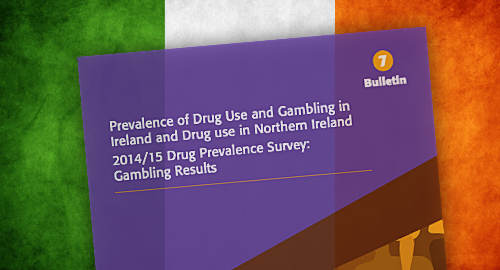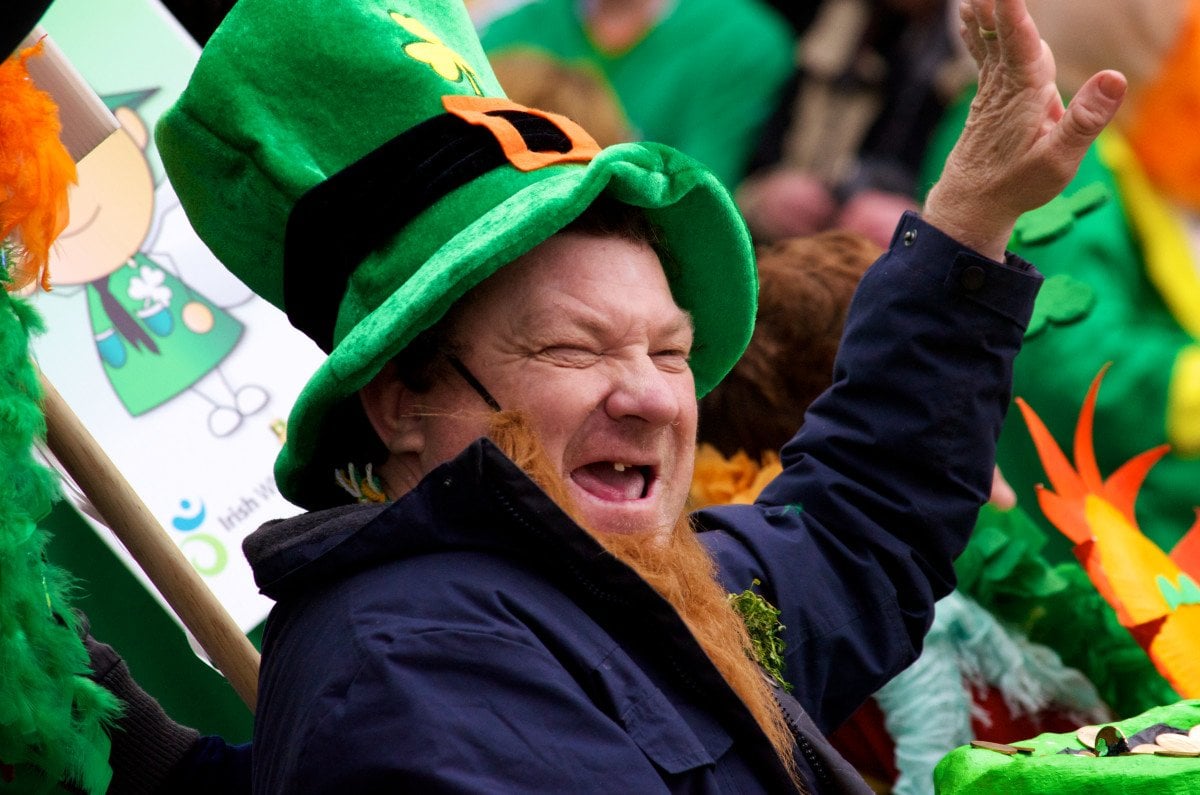The underlying features of online gambling casinos
If you want to capture the extension of fun, thrill and entertainment in your routinely life by playing gambling games, you should come in front of the internet doorsill. Once going through on online gambling site, your thrill will be sparked because tons of gambling sites thrive rapidly, keeping in view the jet age. They are intently created only for passionate people like you and are cut and dried to supply your best fun and entertainment in the online gambling dais.
Although Ireland is primarily known for the horse and greyhound racing activities organized there, other forms of gambling are also popular. For example, bookmakers and adjusting premises, as well as wagering, have been subject to regulation in the country since the 18th century by different statutes and common law. Gambling has long been a favorite pastime of Irish citizens. It has been integrated deeply into the culture of the country and it is considered a pro-gambling region. Currently, the country's law supports the regulation of various forms of land-based casinos and online gambling within its island borders. Gambling winnings in Ireland are currently tax-free, but a 2% tax is collected on sports bets. In March 2009, the National Lottery began offering instant win and draw games online. The multibillion-euro gambling industry in Ireland is regulated by arcane laws, namely the Gaming and Lotteries Act 1956 and the Betting Act of 1931. As part of new regulations, the Government has. Ireland was one of the earliest countries to legalize online gambling. It is also one of the most liberal. Ireland has a slew of licensed casinos unlike many other countries. For a web joint to operate in the Emerald Isle, it must obtain a gambling license issued by the government.
Online gambling sites feature many interesting and lucrative games like online roulette, bingo, craps, and keno and so on—just for saving your presence. But most of these games are expressly based on luck or chance, so if you get a chance for being a winner, you will put your feet down to step here very often.
But while browsing these online gambling sites, you will experience that certain most sites gives you the chance for playing casino games for free and for real money as well. If you are new you should go in for playing free casino games, but if you are a longtime player, you can play either or both the games types simultaneously.

Apart from this, while browsing you will also notice that certain sites will comprehensively allow you to avail of online gambling expressly by depositing certain sum of money, while there are sites that give you the facility of the free registration. For most advantageous results, you can take hint of the most popular search engine to sort out a list of best reputable websites.
All questions
Overview
i DefinitionsMany forms of gambling have been regulated in Ireland for centuries. Irish law distinguishes primarily between three main forms of gambling: betting, gaming and lotteries.
BettingBetting is governed by the Betting Act 1931, as amended by the Betting (Amendment) Act 2015 (the Betting Acts).

The word 'bet' is not defined in Irish law. Instead, the Betting Acts state that '. . . the word bet includes wager . . .'. The scope of what constitutes a bet has fallen to be determined at common law by the courts, although case law is rare. In Mulvaney v. The Sporting Exchange Ltd trading as Betfair, Clarke J stated that:
While bookmaking is not defined in that legislation it seems to me that the term bookmaker derives from a person or body 'making a book' on an event. In other words, the person or body concerned offers odds on all or a significant number of eventualities arising in respect of the same event (for example, offers odds on each horse winning or offers odds on either team winning a football game, or, indeed that game resulting in a draw). Thus, a person carrying on the business of bookmaking is someone who habitually offers to cover a range of possible eventualities on future uncertain events. Two private individuals entering into a wager on the same future uncertain event could not remotely be said to be engaged in the business of bookmaking.
Accordingly, the general consensus arising from case law is that betting encompasses a bookmaker setting fixed odds against a future event, taking bets on that event and paying out winnings.
GamingGaming is governed primarily by the Gaming and Lotteries Acts 1956–2013 (the Gaming and Lotteries Acts).
Gaming is defined in the Gaming and Lotteries Acts as 'playing a game (whether of skill or chance or partly of skill and partly of chance) for stakes hazarded by the players'. A stake is defined as including 'any payment for the right to take part in a game and any other form of payment required to be made as a condition of taking part in the game but does not include a payment made solely for facilities provided for the playing of the game'.
LotteriesLotteries are permitted by the Gaming and Lotteries Acts, but are heavily regulated and there are restrictions on their operation. As per the Gaming and Lotteries Acts, a lottery 'includes all competitions for money or money's worth involving guesses or estimates of future events or of past events the results of which are not yet ascertained or not yet generally known'.
The Irish National Lottery falls outside the scope of the Gaming and Lotteries Acts and, instead, is regulated by the National Lottery Act 2013 (the 2013 Act), which repealed and replaced the terms of the National Lottery Act 1986. In 2013, following a competitive tender process, the Irish government awarded a 20-year licence to operate the Irish National Lottery to a consortium involving An Post (the Irish post office) and led by the UK national lottery operator, Camelot. The most notable feature of the 2013 Act is the establishment of a new office, the Regulator of the National Lottery, whose primary functions are to ensure that the Irish National Lottery is run with all due propriety, to ensure that participants' interests are protected and to ensure that the long-term sustainability of the Irish National Lottery is safeguarded.
Tote/pari-mutel bettingThe Totalisator Act 1929 provides for the establishment and regulation of the Totalisator by the Irish Revenue Commissioners. The Irish Horse Racing Industry Act 1994 provided that the Irish Horse Racing Authority could apply for and hold a totalisator licence. This was later transferred to Horse Racing Ireland by the Horse and Greyhound Racing Act 2001, and the licence is currently held by a subsidiary of Horse Racing Ireland called Tote Ireland. Tote Ireland's current licence is due to expire in 2021. Bord na gCon (the national greyhound board) is licensed to operate a totalisator at greyhound tracks.
Financial spread bettingSpread betting on financial instruments is governed by the Markets in Financial Instruments Directive (2004/39/EC) and regulated by the Central Bank of Ireland.
Prize bonds
Irish Government Prize Bonds are regulated separately from other forms of gaming and lotteries. They are described in the Finance (Miscellaneous Provisions) Act 1956 as non-interest bearing securities that are 'subject to such conditions as to repayment, redemption or otherwise as [the Minister] thinks fit and in relation to which chance may be used to select particular securities for prizes'.
Pool bettingThere is no equivalent in Ireland to the types of pool betting licences (non-remote and remote pool betting licences) that can be obtained from the UK Gambling Commission and that can be used by operators to provide pool betting or fantasy sports products. Instead, if an operator in Ireland wishes to provide a pool betting or fantasy sports product in which the amount of money won by the successful customers is calculated by dividing the total pool (minus commission) by the number of winners, it would be necessary to analyse the characteristics of the product to determine whether it could be characterised as a bet or a game under Irish law.
Betting on lotteriesThere is no specific licence in Ireland for betting on the outcome of lotteries. There are a number of operators offering such products to Irish consumers under a remote bookmaker's licence. There is no prohibition on betting on the result of the Irish National Lottery.
ii Gambling policy
Although gambling has a long history in Ireland, the Irish authorities have recognised that the legislation governing gambling requires modernisation. As currently drafted, betting (remote, non-remote and intermediary) is permitted where a licence has been issued under the Betting Acts. Gaming and lotteries (except for the National Lottery) are primarily governed by the Gaming and Lotteries Acts. However, under the Gaming and Lotteries Acts, gaming is prohibited unless it falls under one of the exemptions contained in the Acts.
Those exemptions broadly relate to gaming that takes place in circuses, carnivals and amusement halls, and gaming that is operated in a certain way. The Gaming and Lotteries Acts have not been updated to take account of internet gaming. It is, however, common for operators that are lawfully licensed overseas to offer online gaming services to Irish customers provided that the gaming contracts are not governed by Irish law.
There is a political desire to modernise Irish gambling law. On 15 July 2013, the government published the heads of the Gambling Control Bill 2013 (the Scheme), which, if enacted, would have modernised Ireland's legislative framework for all types of online and land-based gambling. However, in early 2018, media reports indicated that there are plans to scrap the Scheme and prepare and publish a new, updated Scheme, on the basis that the original Scheme is now considered outdated and no longer fit for purpose. In March 2019, the government approved the establishment of a gambling regulatory authority and the publication of the Gaming and Lotteries (Amendment) Bill 2019 (the '2019 Amendment Bill'), which provides for the long overdue modernisation of the Gaming and Lotteries Acts. See Section VIII, below, for further information.
The Irish National Lottery is designed to raise money for charities and good causes.
Gambling Casinos In Dublin Ireland
iii State control and private enterpriseFor the most part, gambling in Ireland is the subject of private enterprise and the normal principles of free competition apply. Private citizens and companies, whether based in Ireland or abroad, are entitled to apply for a betting licence subject to fulfilling the various requirements to obtain a licence. The main exception to this policy is the Irish National Lottery, which is the subject of the 2013 Act, under which a single licensee is chosen to operate the Irish National Lottery following a competitive tender.
Gambling In Ireland
iv Territorial issuesWhere regulated, gambling is generally regulated nationally. There are generally no special states, municipalities or localities in Ireland that have separate gambling legislation. Northern Ireland is part of the United Kingdom and its gambling laws are separate to those of the Republic of Ireland.
v Offshore gamblingOffshore gambling operators who offer betting services or betting intermediary services by remote means to Irish citizens are required to obtain either a remote bookmaker's licence or remote betting intermediary's licence from the Irish authorities under the Betting Acts. Remote in this context is described as meaning, in relation to a communication, any electronic means including the internet, telephone and telegraphy (whether wireless or not). It is clear from the list of operators who have obtained the necessary licences that there is a significant number of offshore gambling operators offering betting products to Irish citizens.
Online gaming products (e.g., casino, slots, bingo) are governed by the Gaming and Lotteries Acts, although the legislation has not been updated to take account of online internet gaming. The focus of the Gaming and Lotteries Acts is on gaming carried out in amusement halls, arcades, funfairs, carnivals, travelling circuses and slot machines and therefore quite how it is to be applied to the type of games offered online is unclear. However, it is common for operators who are licensed in other jurisdictions to offer online products to Irish customers. It is important in such circumstances that the contract between the operator and the Irish customer is not governed by Irish law. Operators should also be aware that the Gaming and Lotteries Acts prohibit the promotion, advertising and the provision of unlawful gaming products so it is important that operators are familiar with these provisions.
The Irish Revenue Commissioners actively monitor compliance by remote operators with the licensing regime that applies for remote bookmakers and remote betting intermediaries. We are aware that the Irish Revenue Commissioners have actively pursued operators who have not registered as remote bookmakers and remote betting intermediaries. In addition, we are also aware that the Irish Revenue Commissioners actively follow up with operators if they are not registered and paying remote betting tax, remote intermediary duty and VAT on e-gaming activities, and have wide-ranging powers in order to ensure compliance.
Gambling Age In Ireland
Under the Betting Acts, the Irish Revenue Commissioners have the power to issue compliance notices to third parties who provide facilities or services (e.g., advertising, internet service provider (ISP), telecommunications, payment services) to unlicensed remote betting and betting intermediary operators requesting them to cease supplying such services to unlicensed operators. Failure to comply with a compliance notice is an offence and can lead to a fine of up to €50,000. In addition, various civil and criminal sanctions may also apply.